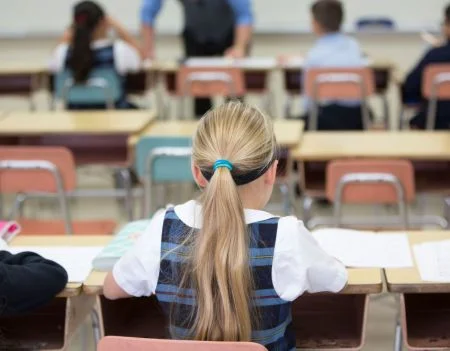
California’s Education Revolution: Are Religious Students Finally Getting a Fair Chance?
In a landmark decision that's reshaping educational access in California, state officials have agreed to fund special education at religious schools, ending decades of exclusion for children with disabilities. This shift raises critical questions about religious freedom and equity in public funding, potentially influencing policies nationwide and sparking debates on the intersection of faith and education.
The controversy stems from a federal lawsuit filed by Orthodox Jewish parents who argued that California's long-standing law, requiring private schools to be 'nonsectarian' to receive state funding, violated constitutional rights. Since 1993, children with learning disabilities could attend private schools at state expense, but only nonreligious ones. A pivotal ruling in October 2024 by the 9th U.S. Circuit Court of Appeals found this policy unconstitutional, citing recent Supreme Court precedents that mandate equal treatment for religious institutions.

Superintendent of Public Instruction Tony Thurmond's office opted not to appeal, instead settling the case on May 19, 2025, allowing funding for both secular and religious schools. Advocates celebrated this as a victory for inclusivity. Daniel Mitzner of the Teach Coalition remarked, 'For too long, California has discriminated against children with disabilities simply because of their faith. This settlement puts that injustice to an end.' Similarly, Eric Rassbach from the Becket Fund for Religious Liberty emphasized, 'This ensures that Jewish kids with disabilities can access the resources they need and deserve without sacrificing their religious beliefs.'
The case highlighted poignant personal stories, such as parents whose children with autism faced challenges in public schools, including nonkosher meals that conflicted with their Orthodox faith. These narratives underscore a broader issue: the Individuals with Disabilities Education Act (IDEA) aims to provide free, appropriate education, yet California's restrictions forced families to choose between religious education and necessary services. Comparative analysis shows this aligns with Supreme Court rulings, like the 2017 decision requiring Missouri to fund a church's preschool improvements, illustrating a trend toward greater religious accommodations.
Critics might argue that public funds for religious schools blur church-state lines, but supporters counter that it's about equal access. The settlement not only resolves claims for the plaintiffs but also sets a precedent, potentially affecting how states handle special education funding. With support from 22 states and organizations like the California Catholic Conference, this decision reflects growing momentum for religious equity in education policy.
Ultimately, this ruling signifies a step toward eliminating discriminatory barriers, ensuring that no child is left behind due to their beliefs. As California moves forward, it prompts reflection on whether this is a model for other states or a point of contention. What do you think—this change a win for religious freedom or a risky precedent? Share your views in the comments and help shape the conversation on education and equality.